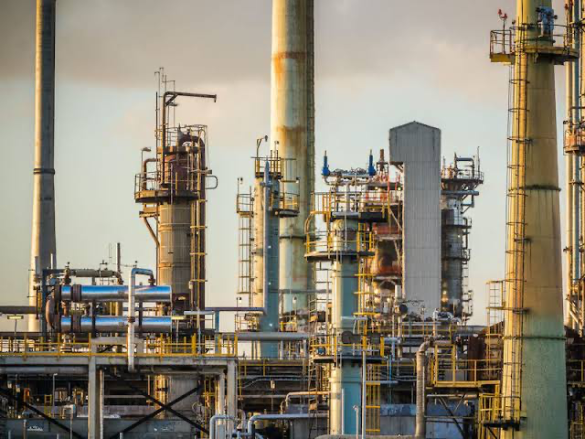South Africa is facing a looming gas crisis that could trigger the country’s next economic meltdown, according to the Energy Council of South Africa (ECSA), an industry body that represents companies such as Sasol and Glencore. The ECSA said that the country’s supply of natural gas, which is mainly used for industrial purposes, is set to plunge within the next three to four years as reserves from its main supplier, the Pande-Temane gas fields in Mozambique, dwindle. This could jeopardise the country’s decarbonisation strategy, which relies on gas as a transition fuel to reduce its dependence on coal and diesel.
The ECSA’s warning comes amid a series of energy challenges that have plagued South Africa for years, such as chronic power outages, ageing and unreliable coal-fired power plants, rising electricity tariffs, and inadequate investment in renewable energy sources. The country’s energy woes have hampered its economic growth and recovery from the COVID-19 pandemic, as well as its efforts to meet its climate change commitments under the Paris Agreement. According to the World Bank, South Africa is the 14th largest emitter of greenhouse gases in the world and the most carbon-intensive economy among G20 countries.
The ECSA said that there is an urgent need for a national focus on finding alternative sources of gas supply, such as importing liquefied natural gas (LNG) through ports in Mozambique or South Africa or developing domestic gas resources, such as the recent discovery by TotalEnergies off the west coast of South Africa. The ECSA also called for policy clarity and regulatory certainty to attract investment and fast-track implementation of gas projects. “This is not about policy direction, it’s really about execution, making decisions and making sure that policy is converted into very clear regulatory environments where we need investment decisions made,” said James Mackay, the chief executive officer of the ECSA.
The ECSA’s concerns echo those of other experts and stakeholders, who have warned that South Africa’s gas sector is at a crossroads and needs decisive action to avoid a supply crunch and a missed opportunity for economic development. According to a recent study by the National Business Initiative, Business Unity South Africa and the Boston Consulting Group, gas could play a critical role in South Africa’s path to net-zero emissions by 2050, but only if it is affordably sourced and gradually replaced by greener alternatives such as hydrogen. The study estimated that South Africa’s gas consumption could increase from 180 petajoules per annum in 2020 to 400 petajoules per annum in 2030, creating up to 300,000 jobs and contributing up to 2% of GDP.
However, the study also highlighted the risks of relying on gas without a clear exit strategy, as gas is still a fossil fuel that emits greenhouse gases and could become stranded in a low-carbon future. The study recommended that South Africa should pursue a “gas-to-power-plus” approach, which would use gas not only for electricity generation, but also for industrial applications, transport, and green hydrogen production. The study also suggested that South Africa should leverage its gas potential to foster regional integration and cooperation, especially with Mozambique, which has vast offshore gas reserves that could benefit both countries.
Despite the challenges and uncertainties, the ECSA said that there is still time to avert a gas crisis and seize the opportunities that gas offers for South Africa’s energy transition and economic growth. “We still have time, we can get it done, but we’ve got to move very quickly,” Mackay said.
Source: Bloomberg



